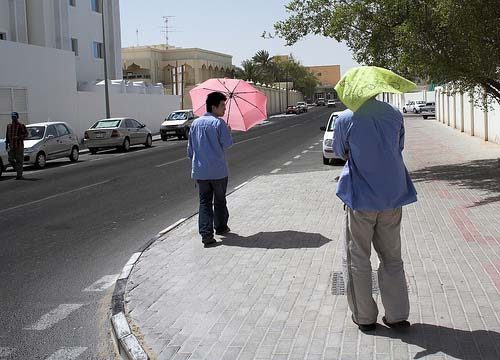
It’s that time of the year when Hamad Hospital starts seeing an uptick of heat-related illnesses, including sunburn, heat stroke and dehydration.
To avoid ending up in the ER this summer, HMC advises the following:
- Drink more, but wisely. Consume water to replenish what your body loses through sweating, but avoid drinks with caffeine or alcohol, because they can cause you to lose more body fluids.
- Stay inside. Don’t go out between 10am and 3pm if you can help it. Schedule outdoor activities in the early morning or evening hours. Consider wearing: a hat, sunglasses, sunscreen and light-colored, loose-fitting clothing.
- Stick to the buddy system. If you’re going to be outside for a while, make sure you have some company, because the onset of heat-related illnesses can prompt sudden drowsiness.
- Eat small snacks, not big meals. Digesting large or hot meals can can up body temperature. Aim to get some salt or fruit juice in your diet to replenish the minerals lost through excessive sweating. Those on restrictive diets for health reasons should consult their doctors before altering them.
- Drink during exercise: Consume two to four glasses of water or other cool, non-alcoholic fluids per hour. If exercising outdoors, start slowly to acclimate your body to the hot weather. Stop working out if you start having a fast or strong heartbeat and are feeling tired.
- Don’t leave kids in the car: Never leave infants, children or pets unattended in a parked car, as temperatures can rapidly rise inside the vehicle.
- Check in on the vulnerable: Keep an eye on those who are at a greater risk of suffering from heat-related illness, including the elderly, young children and babies, and those who are obese or with chronic illnesses such as diabetes and hypertension.
Here’s the full press release, which includes definitions of different heat-related illnesses and what to do if you or someone else suffers from them.
Thoughts?
Credit: Photo by Shenghung Lin







